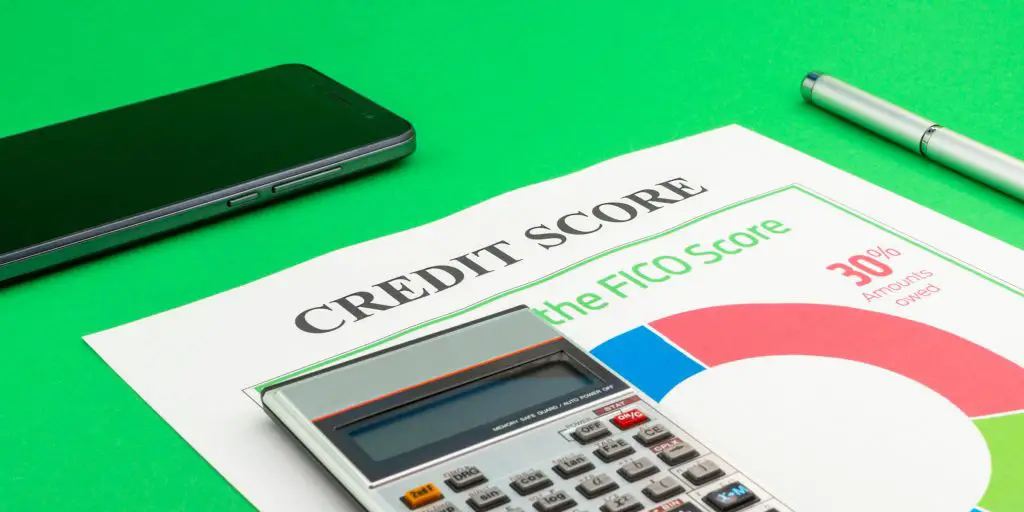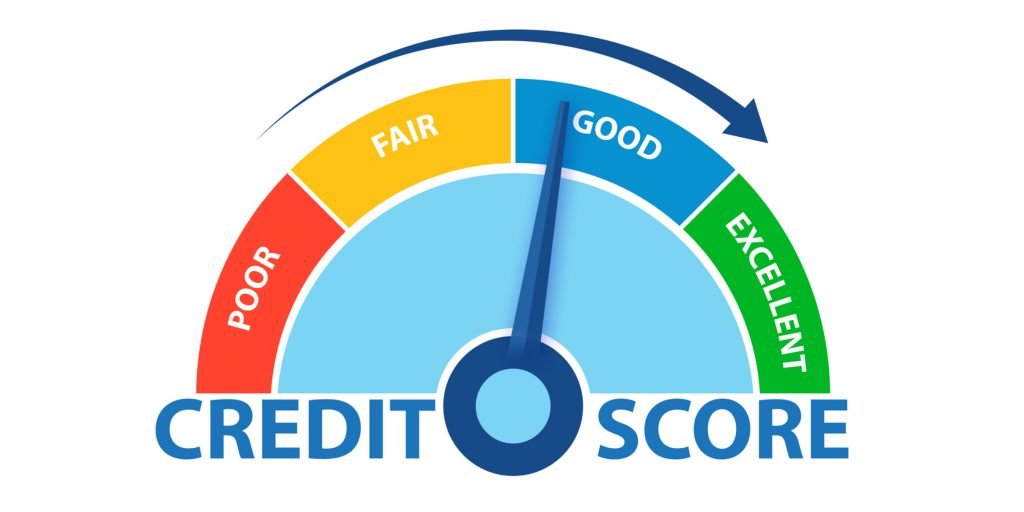The dream of homeownership can often seem like a distant fantasy for those with bad credit. But it doesn’t have to be: with careful planning and some determination, you can overcome your bad credit and secure that mortgage you’ve been dreaming of. Here’s how to make it happen.
It may be possible for people with really bad credit to get a mortgage, but it will be more difficult and they may have to pay higher interest rates or have a co-signer. It is recommended to improve your credit score before applying for a mortgage to increase the chances of approval and better terms.
Bad credit can be overwhelming, but don’t let it stand in the way of achieving your goals. With the right strategies and a little perseverance, you can make progress towards improving your credit score and securing a mortgage.
You don’t have to let bad credit stop you from owning the home of your dreams – let’s take a look at how you can make it happen.
What Is Bad Credit?
Bad credit is a term used to describe a person’s credit score or the information in their credit report. A credit score is a number that lenders use to evaluate the risk of lending money to an individual. It generally ranges from 300-850 and gives lenders an indication of how likely an individual will be to repay what they owe.
Bad credit scores are typically below 650, indicating that the borrower may be more likely to default on their payments. In order to calculate a credit score, lenders review a person’s credit report which contains information about how they have borrowed and repaid money in the past. The report includes details such as loan repayment history, outstanding balances, and any accounts that were sent to collections.

Credit checks are also conducted when evaluating potential borrowers in order to confirm the accuracy of their financial information. A poor credit rating can make it difficult for individuals to secure financing for large purchases like homes or cars. Lenders are wary of applicants with bad credit since they present greater risks as borrowers due to their history of repayment issues.
As such, those with bad credit may find themselves unable to obtain loans at all or may be charged higher interest rates than those with good credit scores. Fortunately, there are steps that can be taken by individuals who wish to improve their credit rating and increase their chances of obtaining mortgages or other forms of financing. Moving forward, we’ll explore some of the causes of poor credit so that we can better understand how it affects our ability to borrow money from lenders.
Causes Of Poor Credit
People with bad credit are like a house of cards—it takes only one wrong move to send them toppling down.
Poor credit is a broad term that can encompass various types of credit issues or adverse credit, such as:
- Negative items on a credit report
- Late payments
- Collections or charge-offs
- Bankruptcies
Bad credit can result from a variety of mistakes and misfortunes. It may be the result of lack of financial knowledge, poor money management skills, overspending, unexpected life events such as job loss or medical emergency, identity theft, and more. In addition, many people simply do not understand how their actions affect their credit score.
The consequences of having poor credit can be staggering—from difficulty securing financing for larger purchases such as a home or car to higher interest rates when borrowing money. Fortunately, there are steps you can take to improve your situation and raise your credit score.
With the right guidance and dedication, it is possible to build up a good credit history again.
Now that we know what causes poor credit scores, let us take an in-depth look at how these scores are determined.
Credit Scoring Systems
Having discussed the causes of poor credit, it is time to look into how credit scoring systems work. Credit scoring systems are used to determine an individual’s creditworthiness based on their credit record. These scores are typically offered by credit reference agencies and will usually be between 0 and 999.
A bad credit rating is usually anything below 500 and can indicate that a person may not be eligible for certain loans or mortgages. The different credit reference agencies all use different methods to calculate their scores, but they generally take into account such factors as your payment history, the amount of debt you have, the length of your credit history and whether you have any defaults or bankruptcies in your past.
A high score indicates that you are a reliable borrower who pays their debts on time, while a low score suggests that you may have difficulty managing your finances in the future. It is also important to remember that these scores do not always accurately reflect an individual’s financial situation as they may not take into account other important factors such as income or assets. Therefore, it is important to ensure that you check your own credit history regularly so that any inaccuracies can be corrected before applying for a loan or mortgage.
By understanding how these scores are calculated and monitoring your own personal financial situation, you can increase your chances of being approved for a loan or mortgage even if you have bad credit. This section has provided some insight into how credit scoring systems work and what steps can be taken to improve one’s score. Moving on, we’ll look at some tips for overcoming bad credit when applying for a mortgage.
Tips To Improve Credit Score
One of the most important factors to consider when trying to overcome bad credit to secure a mortgage is improving one’s credit score. This is no small task, as it requires diligence and patience.
The first step for anyone looking to improve their credit score should be to review their credit file and check for any mistakes or inaccuracies that may be skewing their score. If any such issues are found, they should be rectified with the relevant credit reporting agency as soon as possible.
The next step in improving one’s credit score is to address overdue payments and debts. It is important to repay any debts on time and strive to pay them off as quickly as possible. One of the best ways of doing this is by setting up a budget so that all debts can be tracked and managed accordingly. Additionally, it can help if extra money is put towards paying down debt faster than what the minimum payment requires.
It can also be beneficial when attempting to improve one’s credit score if they do not apply for too many lines of credit at once – especially if they have no intention of using them all. Instead, it may be more beneficial for individuals to focus on using just one or two lines of credit responsibly over a longer period of time. This will help demonstrate a more responsible use of credit over an extended period which could eventually result in an improved score.
Finally, it may also help individuals if they are able to limit themselves from taking out any further loans or other kinds of borrowing in order to reduce overall debt levels. Taking these steps could prove vital in helping individuals reach the point where they are able to obtain the mortgage loan for which they are applying despite having bad credit initially.
With these tips in mind, it should now be easier for individuals to calculate their loan-to-value ratio and understand how much money they can borrow based on their current financial situation.

Calculate Your Loan-To-Value Ratio
Once you have taken steps to improve your credit score, the next step in securing a mortgage is calculating your loan-to-value ratio. This is an important factor for lenders when determining the amount of risk associated with the loan.
Your loan-to-value ratio compares the amount of the mortgage loan to the appraised value of the home. The higher the percentage, the higher the risk and the less likely it will be approved by a lender.
Here are four ways to lower your loan-to-value ratio:
- Increase your deposit: The more money you can put down up front, the lower your loan-to-value ratio and thus, less risky for lenders.
- Obtain private mortgage insurance (PMI): PMI is a type of insurance required by lenders if you don’t have enough equity in your home or don’t make a large enough deposit when purchasing it.
- Refinance existing loans: By refinancing, you can pay off outstanding debts, which could lower your loan-to-value ratio if done correctly.
- Provide additional income documents: Providing proof that you have a steady source of income could also help lower perceived risks to lenders and reduce your overall LTV ratio as well.
By understanding and taking steps to reduce this key number that lenders rely on when deciding whether or not to approve a mortgage, you can increase your chances of being approved and obtaining the home you desire!
Increase Your Down Payment
Securing a mortgage when you have bad credit can be incredibly challenging. People who are trying to buy a home but have a low credit score must take steps to improve their financial situation in order to make their dreams of homeownership a reality.
One way to help get the approval of your mortgage application is to increase your down payment. Having a larger deposit means that lenders feel more comfortable taking on the risk, as it reduces the amount they would need to loan out. A higher down payment can also mean lower interest rates and monthly payments, so it’s worth spending some time saving up for that extra money.
Even if you don’t have perfect credit, having cash upfront can make all the difference when applying for one of the many bad credit mortgages available today. It may not be easy, but with dedication and plenty of effort, it is possible to save enough money for a larger down payment on your mortgage loan.
Start by making a budget and tracking where your money goes each month. Look for areas where you can cut back and use that extra money towards increasing your deposit size. You might even consider increasing your income through side gigs or freelance work to help boost your savings quickly.
By taking actionable steps like these, you’ll soon be well on your way towards putting together enough funds for an improved down payment – helping you secure the financing needed for homeownership and making sure that bad credit doesn’t stand in the way of achieving your dreams.
With this groundwork laid, we’re ready now to move onto our next step: dispute any errors on your credit report.
Dispute Credit Report Errors
When it comes to overcoming bad credit and securing a mortgage, one of the most important steps is to dispute any errors on your credit report. The credit reporting agencies are not always accurate in their tracking of debts and late payments, which can cause your credit score to drop unexpectedly. Taking the time to review and dispute any inaccuracies can go a long way towards improving your overall credit situation.
The first step in this process is to obtain a copy of your report from all three major credit bureaus: Equifax, Experian, and TransUnion. It’s generally recommended that you do this once a year, as these reports often contain information that could impact your credit score in either a positive or negative way. Once you have the reports in hand, take the time to look them over for any discrepancies or incorrect entries.
If you do find an error on one of your reports, there are several steps you can take to dispute it:
- Contact the creditor: If the error is due to a mistake by one of your creditors (such as an incorrect balance or late payment), contact the creditor directly and ask them to correct it.
- Submit a dispute letter: If there is still no change after contacting the creditor, submit a dispute letter directly to the credit bureau requesting that they investigate and correct the error.
By taking these steps you can help ensure that any errors on your report are corrected quickly and accurately so that they don’t have an undue effect on your ability to secure financing for a mortgage loan. With any luck, this will put you in position where you can start making on-time payments for at least 6 months – another key factor for restoring good credit history.
Make On-Time Payments For At Least 6 Months
Having the right payment history is essential if you want to secure a mortgage, even with bad credit. That’s why it’s important to make sure that all of your monthly payments are on time and in full. To help with this, here is some advice about how to get back on track with your arrears:
| Step | Advice | Result |
|---|---|---|
| 1. | Make sure you’re up-to-date on all of your current payments. | You’ll avoid any late fees or additional charges. |
| 2. | Pay more than the minimum balance each month, if possible. | You’ll pay off the debt faster and improve your credit score at the same time. |
| 3. | Try to keep the amount of debt you have low compared to your income level. | This will show lenders that you can manage debts responsibly and improve your chances of getting a mortgage loan despite having bad credit. |
| 4. | Set up automated payments for all of your bills so they’re paid on time every month without fail. | This will ensure that you don’t forget any payments which could damage your credit score further. |
These steps should help you begin to rebuild your payment history and put yourself in a better position for when it comes time to apply for a mortgage loan regardless of any past mistakes or bad credit issues you may have had in the past. It may take some time, but eventually, this effort will be rewarded when it comes time to apply for a home loan – now might be the time to consider a cosigner who could help increase your chances of approval even further!
Consider A Cosigner
If you are having difficulty securing a mortgage due to bad credit, having a cosigner can be beneficial. A cosigner is someone willing to take responsibility for your loan if you do not fulfill your obligations.
Mortgage lenders may be more likely to approve an application with a cosigner, as the lender will have a second person responsible for paying off the loan if needed.
Having a cosigner can also help in cases where there has been a county court judgement or other bad credit issues. It will demonstrate to the mortgage lender that you have someone willing to stand behind you and vouch for your ability to make payments on time.
They may still require additional paperwork or information from the cosigner in order for them to agree to an agreement in principle.
When deciding whether or not to use a cosigner, consider these points:
- The potential risks of involving another person in your financial decisions
- How comfortable you and the cosigner feel about signing any documents required by specialist lenders
- Whether or not it is worth it, given that certain lenders may offer mortgages even with bad credit
It’s important to weigh up all the pros and cons before making any decision regarding the involvement of another person when applying for a mortgage with bad credit. With this knowledge, you can move forward and explore alternative homeownership goals without worrying about your bad credit history.
Explore Alternative Homeownership Goals
Many people believe that having a bad credit rating means it’s impossible to secure a mortgage, but this is not the case. With some careful planning and research, individuals with bad credit can still achieve their homeownership goals.
One of the first steps to overcoming bad credit is to research and compare different mortgage deals from banks or other lenders. Finding the best rates and terms that fit one’s individual financial situation can be done by reviewing all of the offers available, as well as getting pre-approved for a loan. This will help in narrowing down the options and ensuring that one finds a deal that works best for them.
In addition to finding the right loan rate, individuals with bad credit should also consider other methods of homeownership such as renting or leasing property on a month-to-month basis. This can provide an affordable way to live in a desirable area without having to take out a large loan or make large monthly payments on a mortgage. Furthermore, it can offer more flexibility when it comes to relocating in the future if needed.
By exploring different options and understanding what is available, individuals with bad credit can still work towards achieving their dream of homeownership without taking on too much risk or financial burden. With some dedication and persistence, these goals are achievable regardless of one’s current credit score.
Frequently Asked Questions
What Type Of Mortgage Is Best For Someone With Bad Credit?
When it comes to securing a mortgage with bad credit, your best option is an FHA loan.
FHA loans are backed by the government and have more lenient requirements than traditional mortgages. They have lower credit score requirements and allow borrowers to put down smaller down payments.
Plus, they offer competitive interest rates and require much less paperwork than other types of loans.
If you’re looking for a mortgage despite having poor credit, an FHA loan could be the right solution for you.
How Long Does It Take To Improve A Credit Score?
Boosting a credit score can seem like a daunting task, but with the right approach, it doesn’t have to be an insurmountable obstacle.
As the saying goes, Rome wasn’t built in a day; similarly, improving your credit score requires patience and perseverance.
Depending on how much damage needs to be undone, it could take anywhere from 3-6 months to see substantial improvements in your score.
Are There Any Lenders That Are More Lenient About Bad Credit?
Bad credit can be a major roadblock when it comes to securing a mortgage, but there are lenders out there that are more lenient about it.
They might require higher down payments or interest rates, but they could provide a path for people with bad credit to get the mortgage they need.
It’s important to do your research and compare different lenders in order to find the best fit for your situation.
Is It Possible To Secure A Mortgage Without A Cosigner?
It’s a tall order, but not impossible to secure a mortgage without a cosigner.
It’s all about getting creative and finding the right lender – you may have to kiss a few frogs before you find your prince.
Many lenders will take into account a person’s history, allowing for some wiggle room if there are extenuating circumstances; however, it can be difficult to get approved without a cosigner due to the risk involved.
That being said, if you can prove that you’re financially responsible and have a reliable income, it is possible to secure a mortgage even with bad credit – it just takes some grit and determination.
How Can I Best Protect Myself From Future Credit Problems?
Protecting yourself from future credit problems is an important step towards financial security. There are a few simple measures you can take to make sure your credit score stays healthy.
Make sure to pay all of your bills on time, and keep track of how much available credit you have. Monitor your account activity regularly, as well as any potential changes in your credit report.
Additionally, be aware of potential scams or identity theft issues that could damage your credit score. Taking these steps will help ensure that your financial future remains free of credit issues.
Conclusion
The thought of having bad credit can be overwhelming. But with a few simple steps, it’s possible to secure a mortgage and move forward in your life.
Start by assessing the type of mortgage that best suits your situation and researching lenders who are willing to work with you despite your credit history.
It may take some time to improve your credit score, but the effort will pay off in the end.
In addition, protect yourself from future credit problems by learning how to manage your finances responsibly.
With perseverance and dedication, you can overcome bad credit and fulfill your dreams of owning a home.
- Rent-to-Rent Schemes: Hidden Dangers Lurk - July 6, 2024
- How to Sell Your House Fast in Kent - July 5, 2024
- 7 Tips to Sell Your House Fast - July 4, 2024


